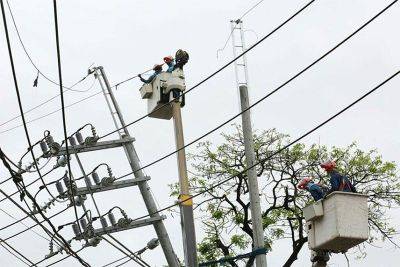Medical cannabis bill hurdles House
MANILA, Philippines — Voting 177-9 with nine abstentions, the House of Representatives on Tuesday approved on third and final reading the controversial piece of legislation that aims to allow the use of cannabis or marijuana for medicinal purposes.
House Bill 10439, which received overwhelming approval from lawmakers, legalizes the use of marijuana for the treatment of various ailments.
The measure will result in the legalization of medical cannabis, but only for qualified patients. It can only be availed of on prescription and under supervision by an accredited physician.
The bill also establishes a Medical Cannabis Office (MCO) that will be tasked to screen medical practitioners who will prescribe the use of medical cannabis, along with prior clearance from the Dangerous Drugs Board, where the physician is excluded from the agency’s watchlist.
Rep. Robert Ace Barbers, chairman of the House committee on dangerous drugs, clarified that once the measure is signed into law, the use of marijuana by patients will only be allowed upon prior approval of qualified physicians who should meet certain requirements in issuing prescriptions.
The accreditation of qualified physicians aims to control and monitor who prescribes medical cannabis to patients. Medical practitioners need training, clearances and other requirements which are not easy to acquire, according to the legislator.
The bill lists the following medical conditions that will allow the use of medical marijuana: cancer, glaucoma, multiple sclerosis, damage to the nervous system of the spinal cord, patients with objective neurological indication of intractable spasticity and epilepsy.
The list also includes positive status for human immunodeficiency virus or acquired immune deficiency syndrome, post-traumatic stress disorder, rheumatoid arthritis or similar chronic autoimmune inflammatory disorders, diseases that require hospice care admission and other conditions that may be identified by the Department of Health through the MCO.
The bill metes a heavy penalty on those found faking illnesses or prescriptions to secure cannabis: jail time of at least six months but not more than six years and/or a fine ranging




